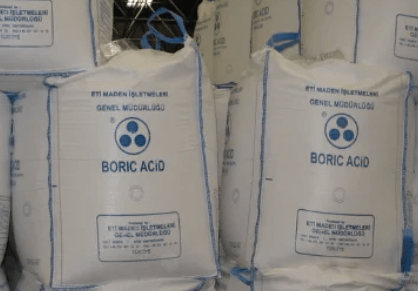
UN-approved FIBCs: Ensuring Safe Hazardous Material Transportation
There are inherent dangers when it comes to transporting hazardous goods so the activity is heavily regulated by UN International Standards, including the use of UN-certified bulk bags.
When using flexible intermediate bulk containers or FIBC bulk bags, it is vital to prevent any injury to people as well as harm to the environment. It is also imperative to ensure the safe transport of the goods themselves, which is why the UN FIBC regulations are in place, which are also known as the ADR (Agreement concerning the international carriage of Dangerous goods by Road) regulations.

There can be serious repercussions for any businesses or organisations who flout the regulations, so always ensure you are using UN-certified bulk bags when transporting hazardous material.
Now let’s look at why such UN-approved FIBC bulk bags are important, and how they help ensure the safe transport of hazardous goods.
UN-Certified Bulk Bags Specifications
UN FIBC bulk bags are specially designed for the safe transportation and storage of hazardous materials, with specifications varying depending on the material’s properties and application needs.
For example, Class 4.1 FIBC bulk bags are for flammable solids, self reactive substances and desensitised explosives. Class 4.2 UN FIBCs are for substances which are liable to spontaneous combustion. The Class 4.3 UN-certified bulk bags are specifically for substances which emit flammable gases when in contact with water.
Class 5.1 and 5.2 are for oxidising substances and organic peroxides respectively, while Class 6.1 FIBC bulk bags are for toxic substances. There are also Class 8 UN FIBC bags for corrosive substances, and a Class 9 UN FIBC for miscellaneous dangerous substances and articles not covered by the other classes.
High Quality FIBC Bulk Bags
These bulk bags, certified by the UN, provide exceptional durability and safety. They are designed with additional strength and leak protection features to effectively handle environmental hazards like fire and potential chemical contamination.
Safety & Testing Requirements
To become UN-certified, production of the FIBC bulk bags must adhere to strict safety and testing requirements set by the United Nations. These UN FIBC safety and testing requirements ensure compliance with international regulations for transporting hazardous goods.
The extensive testing process includes top lift, topple, tear, righting, drop, and stack tests. The FIBC bulk bags must pass these tests to certify their suitability for carrying dangerous materials.
UN-Certified Bulk Bag Codes
UN-approved FIBC bulk bags are also categorised by specific UN codes. For example, the 13H1 code represents an uncoated FIBC bulk bag with no liner, while the 13H4 code represents a coated UN FIBC with a liner.
Other letter codes like X, Y, and Z indicate the approved packing groups for each of the UN-certified bulk bags.
Ensure the safe and compliant transportation of your hazardous materials with Cliffe Packaging’s ADR/UN Certified Bulk Bags. Contact our team today to find the right solution for your needs!


